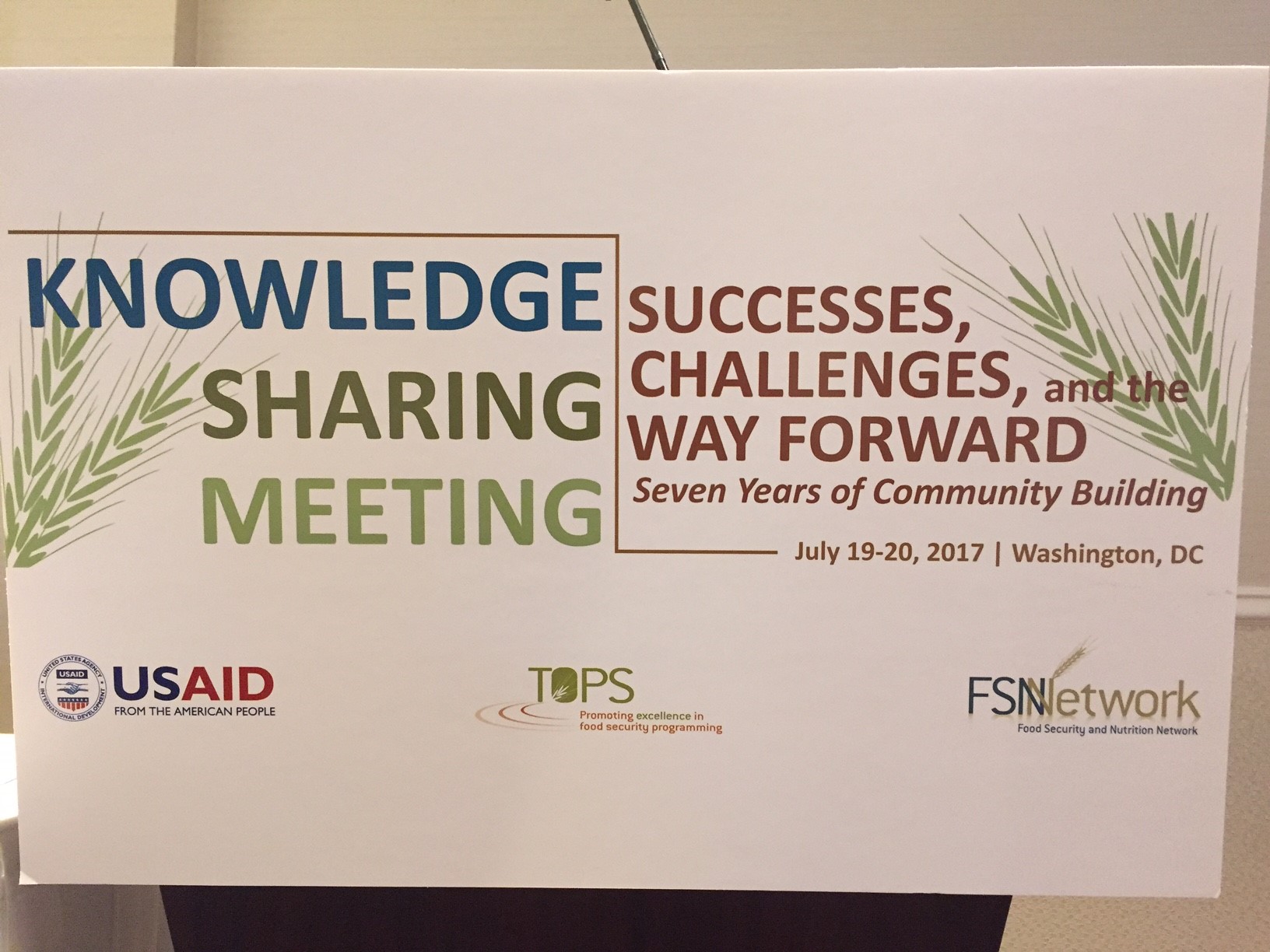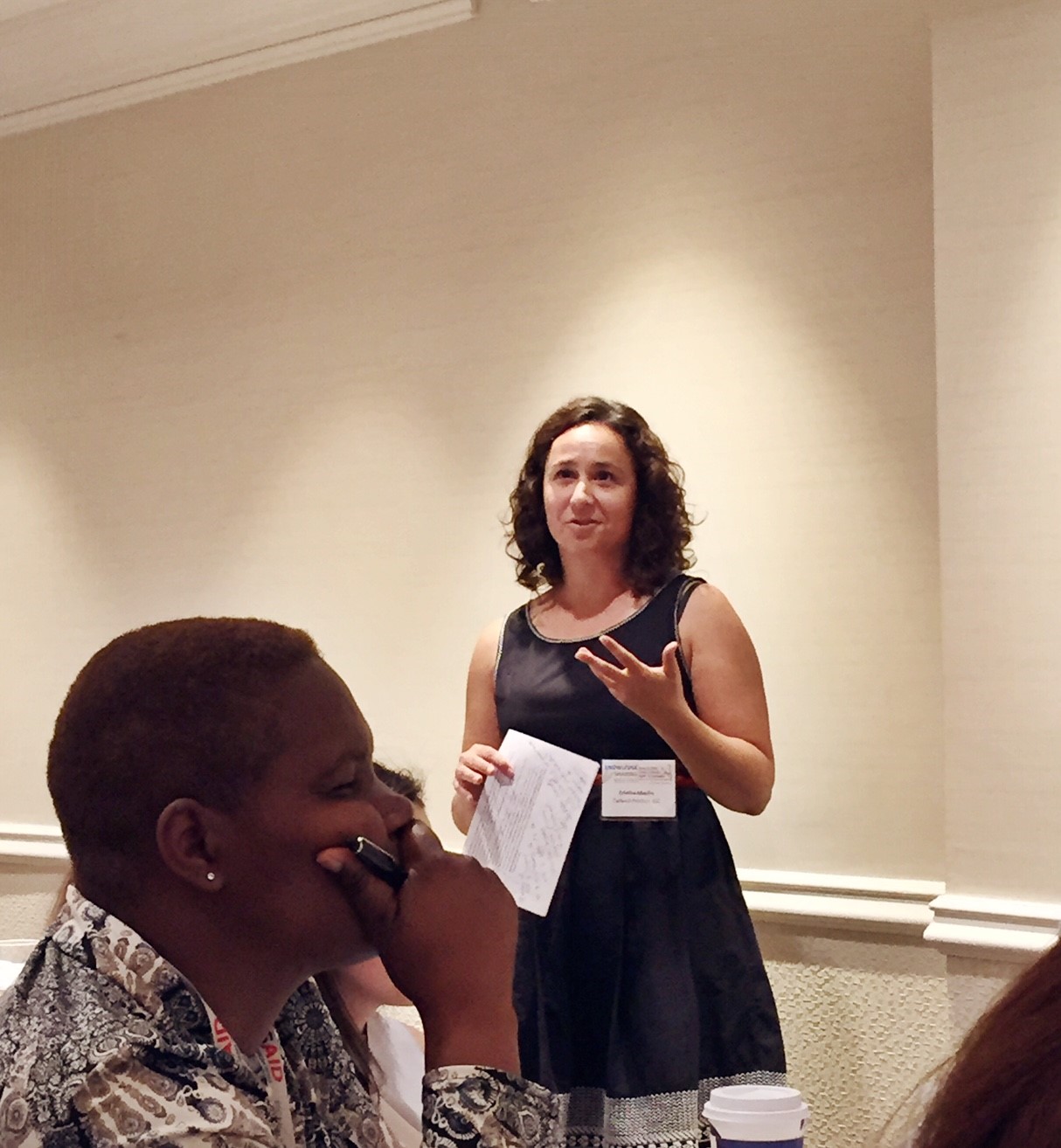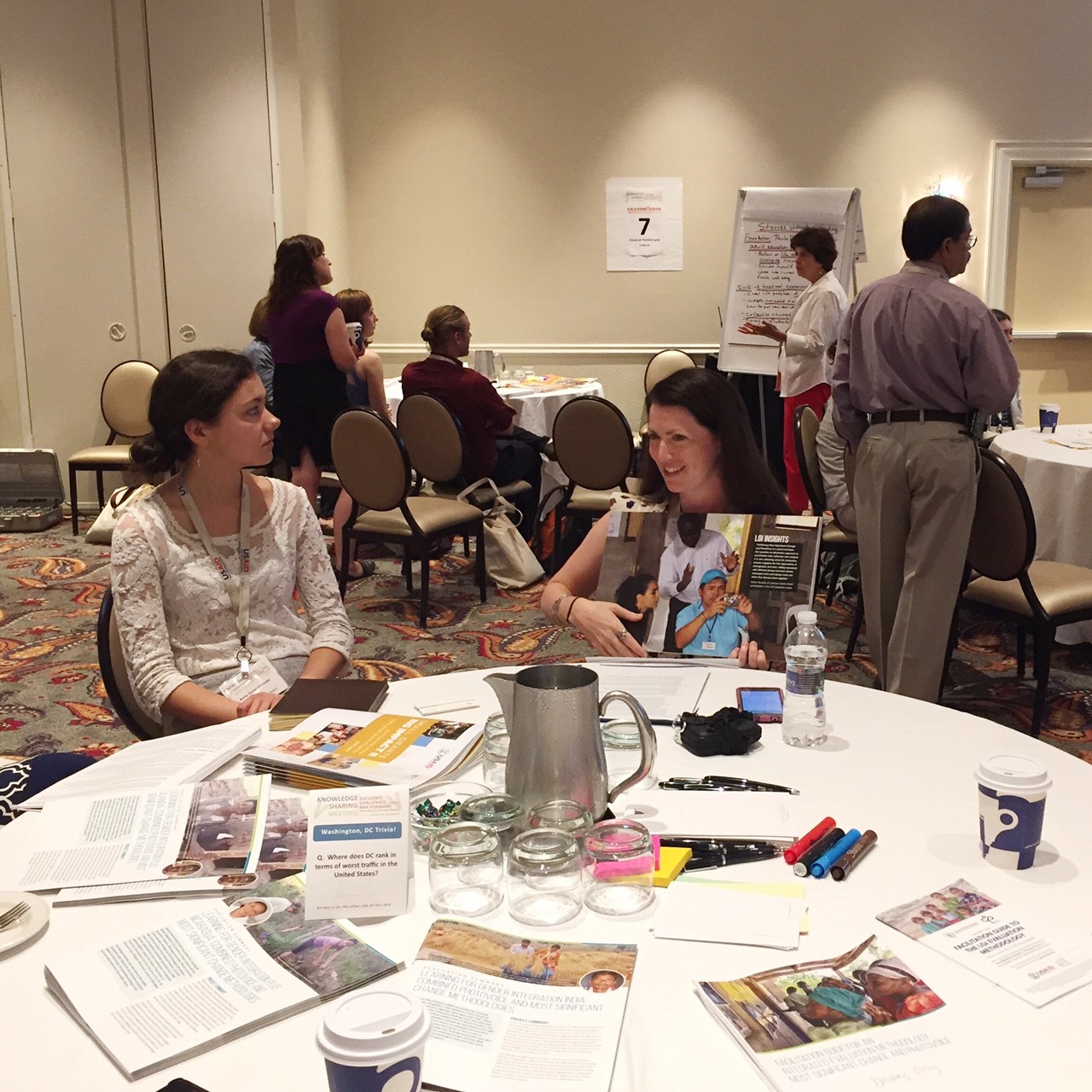Last month, CP participated in the final TOPS/FSN Network Knowledge Sharing Meeting to showcase our work and connect with colleagues. The Technical and Operational Performance Support (TOPS) Program is a learning and knowledge management mechanism funded by USAID’s Office of Food for Peace. TOPS supports technical capacity development, a small grants program, and the Food Security and Nutrition (FSN) Network community of practice, all to promote best practices in development food assistance. CP worked on two different projects under the TOPS Small Grants Program – the Learning for Gender Integration Most Significant Change and PhotoVoice evaluation with Lutheran World Relief, and the guidance document Integrating Gender throughout a Project’s Life Cycle 2.0 with Land O’Lakes International Development.

Find resources from the Knowledge Sharing Meeting here!
Mark Fritzler, Director of the TOPS Program, kicked off the meeting by encouraging participants to “celebrate and not to embalm.” While this was the last Knowledge Sharing Meeting, the FSN Network and the various TOPS Task Force groups will continue to maintain communities of practice. Fritzler reminisced about life before TOPS, on how “we needed a mechanism to share knowledge.” TOPS filled the gap, creating a collaborative network with the potential for furthering new ideas and research in food security.
Matt Nims, Acting Director of USAID’s Office of Food for Peace, opened the first day of the meeting by discussing the Food for Peace strategy, applauding TOPS for their technical help. “Our analysis doesn’t happen in a vacuum,” he explained. The rest of the day was filled with sessions on food aid, resilience, gender, and more.
In a session on the state of gender integration in food security, CP’s Cristina Manfre highlighted CP’s recent work producing a facilitators’ guide on two qualitative methods (Most Significant Change and Photo Voice) with LWR under a TOPS grant, current work in the Philippines with the IFPRI-led Women’s Empowerment in Agriculture Index for Value Chains and our upcoming product, a gender- and nutrition-related technology assessment toolkit that will be coming out under the University of Illinois Integrating Gender and Nutrition within Advisory and Extension Services (INGENAES) project.

During this session, participants also voted on emerging trends in the gender and food security space. The winner was “engaging men and boys,” followed by “economic empowerment for women.” Participants passionately discussed what they wanted to see emerge (including a focus on LGBTQ issues and gender-based violence), compared to the trends appearing on the ground, taking the time to pose questions to the group about their own experiences. The session was a prime example of what one participant said about TOPS: this was a space where you could admit you didn’t always have the answer and could ask for knowledge and help from practitioners in your field while furthering new ideas.
On Day 2, participants in the TOPS Small Grants program described their efforts and presented findings during a conference wide roundtable session. CP partner Lutheran World Relief hosted a roundtable on the Facilitation Guide that CP developed for Most Significant Change and PhotoVoice. Monitoring and Evaluations Manager Wendi Bevins walked us through the methodology and we quickly snapped some photos representing what the conference meant to us, conducting our own mini-PhotoVoice evaluation!
 Wendi Bevins of Lutheran World Relief presents on the Facilitation Guide.
Wendi Bevins of Lutheran World Relief presents on the Facilitation Guide.
Across the room, a representative from Land O’Lakes International Development presented the guidance document Integrating Gender throughout a Project’s Life Cycle 2.0, which was developed with CP’s contributions. While only one session focused solely on gender issues, intersectional gender equality issues were raised throughout the conference.
Resilience was another major theme – how is it measured? How do we build it? On Day 1 of the Knowledge Sharing Meeting, Tiffany Griffin of the USAID Center for Resilience led a session on resilience work and next steps, pointing out research gaps that need qualitative methods to complement the quantitative research. On Day 2, at the plenary session on The Food for Peace Learning Agenda: A Consultative Process, resilience featured prominently as one of the seven learning themes. The Global Food Security Strategy also names “strengthened resilience among people and systems” as one of their objectives.
TOPS created a strongly collaborative knowledge sharing community well situated to generate ideas and research on how to move resilience work and gender integration forward. Throughout the meeting, participants echoed what a success knowledge sharing has been among their organizations due to TOPS. CP experienced this success in our collaborations under the TOPS Small Grant program. TOPS brought together competing organizations and helped them help each other. This valuable accomplishment will live on as TOPS’ legacy, and further research and implementation across the food security sector. CP looks forward to contributing more to the next iteration in food security community building!
Check out the resources from the TOPS Knowledge Sharing Meeting 2017 here.
Photo Credits: Mary Ellen Dingley
